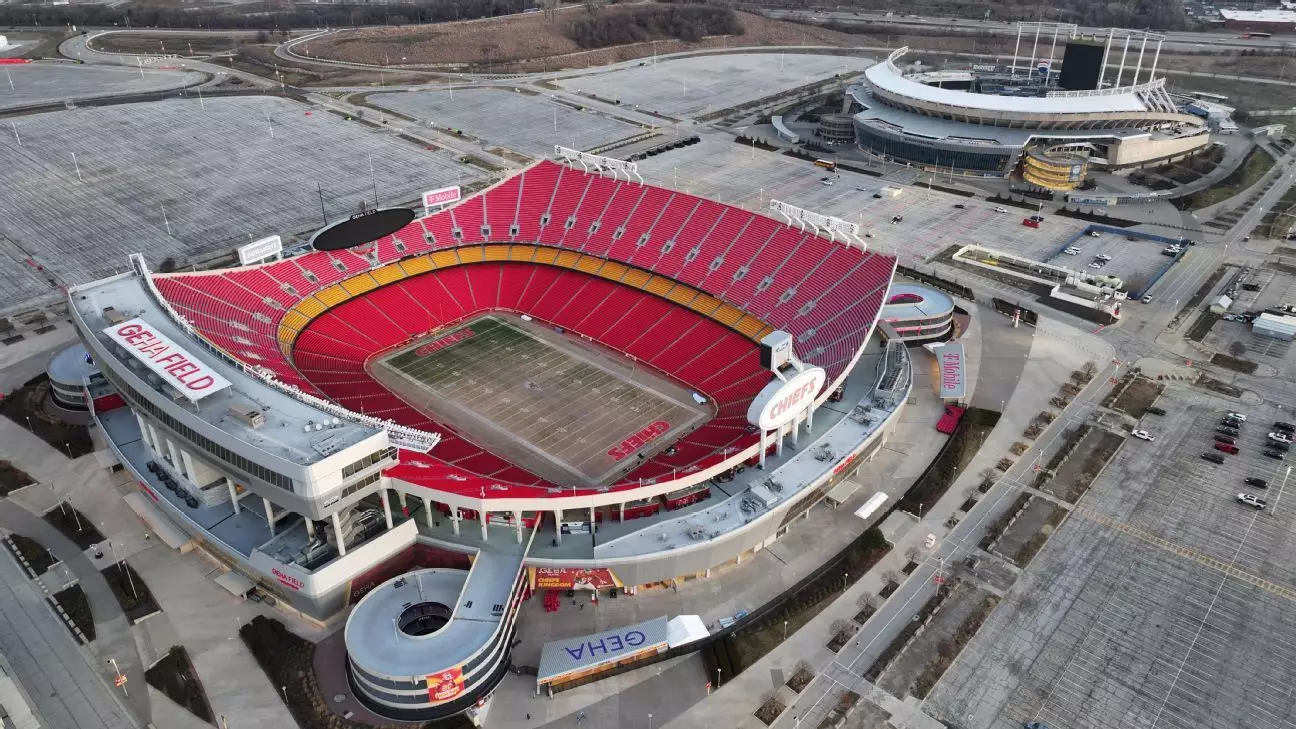Missouri finds itself in a precarious situation as lawmakers scramble to secure the financial futures of its beloved sports franchises—the Kansas City Chiefs and Royals—while simultaneously addressing the aftermath of devastating tornadoes that struck St. Louis. The Senate recently approved a plan that allocates over $100 million for disaster relief in the storm-affected areas, alongside hundreds of millions in incentives aimed at convincing the Chiefs and Royals to remain in Missouri. The tight timeline imposed by a competing offer from Kansas adds a layer of urgency to these legislative discussions, but the question remains: are these funds being used strategically to bolster community resilience or are they simply a bid to placate wealthy team owners?
Urgency Amidst Destruction
The catastrophic tornadoes that tore through St. Louis in mid-May have left behind an estimated $1.6 billion in damages, highlighting an impending humanitarian crisis. As residents grapple with recovering from this natural disaster, state lawmakers are rushing to allocate aid that could help rebuild not just structures, but the very fabric of the community. It seems astonishing that, amidst such devastation, discussions about stadium funding take center stage. While investing in sports teams can generate substantial economic activity, the prioritization of sports over critical community recovery raises ethical concerns. We must ask ourselves, should the focus be on the economic gains of financing athletic arenas, or should it lean toward the immediate recovery efforts of citizen welfare and infrastructure?
Counteroffers and Compromises
The legislative chess game between Kansas and Missouri over the future homes of the Chiefs and Royals is a stark reminder of how competitive environments can lead to questionable tactics, with states pitting their needs against one another. Kansas has already made significant strides by authorizing bonds that cover up to 70% of costs for new stadium builds. In response, Missouri’s proposal seeks to offer up to 50% of the costs along with localized incentives, attempting to portray a competitive edge. However, this rivalry feels less like a race for economic development and more like a high-stakes poker game with taxpayers left holding the bag. Realistically, how much genuine value do these new stadiums provide the community, compared to the pressing needs for disaster recovery?
Economists Challenge the Narrative
As the push for new stadium financing heats up, many economists are raising alarms about the economic justifications behind such investments. The argument that sports facilities lead to significant booster shots for local economies is becoming increasingly scrutinized. Detractors point out that sports tend to siphon off discretionary spending from other forms of entertainment rather than contributing new income. The focus of public funding, therefore, often does not translate into widespread community benefits but rather undermines the state’s ability to invest in essential services like public safety and education. This contention was echoed by Patrick Tuohey, who noted that these funding strategies often enrich billionaire team owners at the expense of the public purse.
Public Sentiment: Love for the Game But Questions Remain
Despite the controversies surrounding funding tactics, fans’ attachment to the Chiefs and Royals is irrefutable. Lobbyists for both teams articulate a deep-rooted love for Missouri, yet the looming chaos surrounding fiscal responsibility complicates the narrative. While the franchises promise community engagement and economic revitalization, the uncertain landscape created by competing bids makes it hard for the public to trust that their interests will be upheld by policymakers. Local sentiment echoes a mixed appreciation for the teams and mounting frustration toward the negotiation strategies that sideline the community’s needs.
In this already turbulent climate, restoring faith in Missouri’s infrastructure—both physical and social—emanates as the primary challenge. A genuine commitment to prioritizing disaster relief over stadium discussions would signify leadership grounded in community well-being rather than transactional relationships shaped by sports economics. The road ahead necessitates a balance between ambition for growth and valuing the lives devastated by recent events, steering clear from the lure of flashy yet frivolous expenditures. In harnessing this moment, Missouri has a unique opportunity to reassess its priorities, ensuring that while the sports teams may be vital to state pride, it is the people of Missouri who should always come first.


Leave a Reply